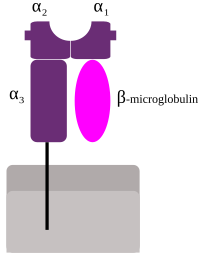
CYLD variants identified in Alzheimer's disease and frontotemporal dementia patients
Sign Up to like & getrecommendations! Published in 2022 at "Annals of Clinical and Translational Neurology"
DOI: 10.1002/acn3.51655
Abstract: CYLD was a novel causative gene for frontotemporal dementia (FTD) and amyotrophic lateral sclerosis. Given the clinical and pathological overlap of FTD and Alzheimer's disease (AD), it is necessary to screen CYLD in AD patients… read more here.
Keywords: variants identified; frontotemporal dementia; alzheimer disease; cyld variants ... See more keywords

ERCC4 variants identified in a cohort of patients with segmental progeroid syndromes
Sign Up to like & getrecommendations! Published in 2018 at "Human Mutation"
DOI: 10.1002/humu.23367
Abstract: Pathogenic variants in genes, which encode DNA repair and damage response proteins, result in a number of genomic instability syndromes with features of accelerated aging. ERCC4 (XPF) encodes a protein that forms a complex with… read more here.
Keywords: variants identified; ercc4 variants; second case; identified cohort ... See more keywords

Novel RET Proto-oncogene Variants Identified in Turkish Patients with Thyroid Carcinoma.
Sign Up to like & getrecommendations! Published in 2020 at "Gene"
DOI: 10.1016/j.gene.2020.144611
Abstract: Thyroid cancer is one of the few malignancies whose incidence is increasing in the last decades. Advances in understanding the molecular mechanisms lead to provide opportunity for prevention, effective early identification and targeted therapies for… read more here.
Keywords: proto oncogene; variants identified; oncogene variants; ret proto ... See more keywords

P3567Genetic screening for monogenic hypertension in hypertensive individuals in a clinical setting
Sign Up to like & getrecommendations! Published in 2019 at "European Heart Journal"
DOI: 10.1093/eurheartj/ehz745.0429
Abstract: Monogenic hypertension describes a series of hypertension syndromes inherited by Mendelian law and present with complex phenotypes. 1179 cases with monogenic hypertension potential were evaluated by sequencing 37 causative genes. Pathogenic variants were classified by… read more here.
Keywords: analysis; variants identified; number; monogenic hypertension ... See more keywords

Novel GZF1 pathogenic variants identified in two Chinese patients with Larsen syndrome
Sign Up to like & getrecommendations! Published in 2020 at "Clinical Genetics"
DOI: 10.1111/cge.13856
Abstract: GZF1 was recently reported as a genetic factor associated with Larsen syndrome. Two patients presenting hip dislocation, scoliosis and severe myopia, as well as hearing loss and other abnormal features, were found to carry two… read more here.
Keywords: gzf1; pathogenic variants; gzf1 pathogenic; novel gzf1 ... See more keywords

Two novel HLA‐DPA1*01:03:01 variants identified in Brazilian individuals: DPA1*01:03:01:38 and DPA1*01:03:01:39
Sign Up to like & getrecommendations! Published in 2020 at "HLA"
DOI: 10.1111/tan.14090
Abstract: Characterization of two novel HLA‐DPA1*01:03:01 variants, HLA‐DPA1*01:03:01:38 and ‐DPA1*01:03:01:39. read more here.
Keywords: dpa1 dpa1; novel hla; variants identified; dpa1 variants ... See more keywords

Pathogenic genetic variants identified in Australian families with paediatric cataract
Sign Up to like & getrecommendations! Published in 2022 at "BMJ Open Ophthalmology"
DOI: 10.1136/bmjophth-2022-001064
Abstract: Objective Paediatric (childhood or congenital) cataract is an opacification of the normally clear lens of the eye and has a genetic basis in at least 18% of cases in Australia. This study aimed to replicate… read more here.
Keywords: australian families; pathogenic genetic; cataract; genetic variants ... See more keywords

Pathogenic variants identified by whole-exome sequencing in 43 patients with epilepsy
Sign Up to like & getrecommendations! Published in 2020 at "Human Genomics"
DOI: 10.1186/s40246-020-00294-0
Abstract: Background Epilepsy is a group of neurological disorders characterized by recurrent epileptic seizures. Epilepsy is affected by many factors, approximately 20–30% of cases are caused by acquired conditions, but in the remaining cases, genetic factors… read more here.
Keywords: exome sequencing; pathogenic variants; identified whole; variants identified ... See more keywords

Genetic variants are identified to increase risk of COVID-19 related mortality from UK Biobank data
Sign Up to like & getrecommendations! Published in 2021 at "Human Genomics"
DOI: 10.1186/s40246-021-00306-7
Abstract: Background The severity of coronavirus disease 2019 (COVID-19) caused by the severe acute respiratory syndrome coronavirus 2 (SARS-CoV-2) is highly heterogeneous. Studies have reported that males and some ethnic groups are at increased risk of… read more here.
Keywords: risk; genetic variants; mortality; variants identified ... See more keywords

Four novel variants identified in primary hyperoxaluria and genotypic and phenotypic analysis in 21 Chinese patients
Sign Up to like & getrecommendations! Published in 2023 at "Frontiers in Genetics"
DOI: 10.3389/fgene.2023.1124745
Abstract: Background: Primary hyperoxaluria (PH) is a rare genetic disorder characterized by excessive accumulation of oxalate in plasma and urine, resulting in various phenotypes due to allelic and clinical heterogeneity. This study aimed to analyze the… read more here.
Keywords: novel variants; primary hyperoxaluria; analysis; chinese patients ... See more keywords

HR Gene Variants Identified in Mexican Patients with Alopecia Areata
Sign Up to like & getrecommendations! Published in 2023 at "Current Issues in Molecular Biology"
DOI: 10.3390/cimb45040194
Abstract: Alopecia Areata (AA) is a multifactorial, dermatological disease characterized by non-scarring hair loss. Alterations in candidate genes, such as HR (Hairless), could represent a risk factor for its development. The aim of this study was… read more here.
Keywords: gene; gene variants; identified mexican; mexican patients ... See more keywords